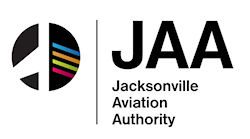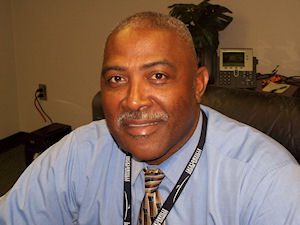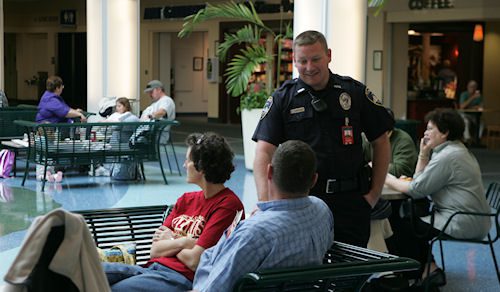 After investigating the option of contracting out police services for Jacksonville International Airport, Jacksonville Aviation Authority (JAA) recently decided to keep services in-house, but make some changes to the department.
After investigating the option of contracting out police services for Jacksonville International Airport, Jacksonville Aviation Authority (JAA) recently decided to keep services in-house, but make some changes to the department.
As part of a general review of its business model, the JAA board of directors formed a security committee in August 2009 to review the effectiveness and efficiency of its law enforcement services. Historically, Jacksonville International has had a police department since the original creation of the then Jacksonville Port Authority. In 2001, the Port Authority was split, and JAA became a stand-alone authority separate from the marine side and retained its police department.
|
|
Action Plan
Last February, Grossman presented a report to the board of directors recommending that the police department stay put, but with some changes. “After our extensive review and analysis, it was decided that the benefits of keeping the entire security program, including law enforcement, under the authority’s control were substantial,” he reports. “The real issue was one of leadership. Hence, we brought in a new security leadership team with the professionalism to head up this effort and maximize those benefits. I am quite confident that we now have the right people in place.”
To lead the charge, JAA hired Wayne Clark Sr., a 30-year JSO veteran, as its new director of aviation security. Clark’s experience includes high-level command duties and positions with the Departments of Corrections, Patrol and Enforcement, Investigations and Homeland Security.
|
|
“Contracting out the services to the JSO would have been more costly and the benefits gained did not justify the higher cost,” Clark explains. “A lack of continuity of personnel assigned to the airport and an incomplete understanding of the CFR 1542 [airport security] regulatory requirements would have greatly impacted efficient operations and increased costs.”
Clark also cites a “training curve” for JSO personnel as another drawback of contracting out police services. An airport is a unique work environment for officers, he notes, and understanding the impact of Transportation Security Administration requirements and other obligations outlined in CFR 139 and 1544 is vital. Clark acknowledges “getting wet drinking out of the fire hose” while familiarizing himself with the intricacies of airport operations and security regulations.
|
Facts & Figures Project: Police Department Review Location: Jacksonville Int’l Airport Performed By: Jacksonville Airport Authority Purpose: Review efficiency & cost-effectiveness of in-house police department Timeline: August 2009 – February 2010 Primary Outcomes: Retain in-house department; reorganize; increase staffing & training |
According to Clark, his long career with JSO and its participation in the evaluation and revamping of JAA’s police force have proved invaluable. “The JSO is a full partner in this transformation process,” he notes. “This relationship with the JSO has allowed almost unrestricted access to the JSO personnel and material capital to assist this evolution.”
Change in Progress
In retrospect, Clark identifies several significant lessons from the evaluation process. “A new command structure was needed, and the overall standards and training of current personnel needed to be raised,” he chronicles. “One consistent point brought out during the evaluation process by the JSO, in anticipation of taking on the contract, was that additional personnel, both sworn officers and unarmed security personnel, were needed.”
The airport police department currently includes Clark, 26 sworn police officers and three civilians. Clark hired a new patrol operations commander and intends to increase the number of sworn officers to 35 and hire 12 unarmed, uniformed security officers to serve as a force multiplier and supplement police personnel. He also raised the minimum qualifications for new sworn officers to nearly match those of JSO officers and raised hiring standards for new airport security officers.
|
|
“Based on our size, passenger volume and other operational needs, we will have approached what has been determined to be an appropriate number of security personnel by the time we complete our hiring process,” Clark reports. “We are also in the process of looking at a strategic plan for safety and security at all airport properties, and other initiatives to increase service efficiency.”
Clark reorganized the police department into two distinct halves: police operations and general aviation/investigative/regulatory compliance. The latter, he notes, will ensure that the airport more fully complies with its regulatory responsibilities. It will also provide greater service to Jacksonville International and JAA’s three general aviation airports: Jacksonville Executive Airport, Herlong Recreational Airport and Cecil Airport, which also serves as an operational base for National Guard and Reserve aviation.
All new police and security personnel are expected to be in place by summer 2011. “Over time,” Clark says, “these initiatives should provide a superior level of safety and security to the airport.”





